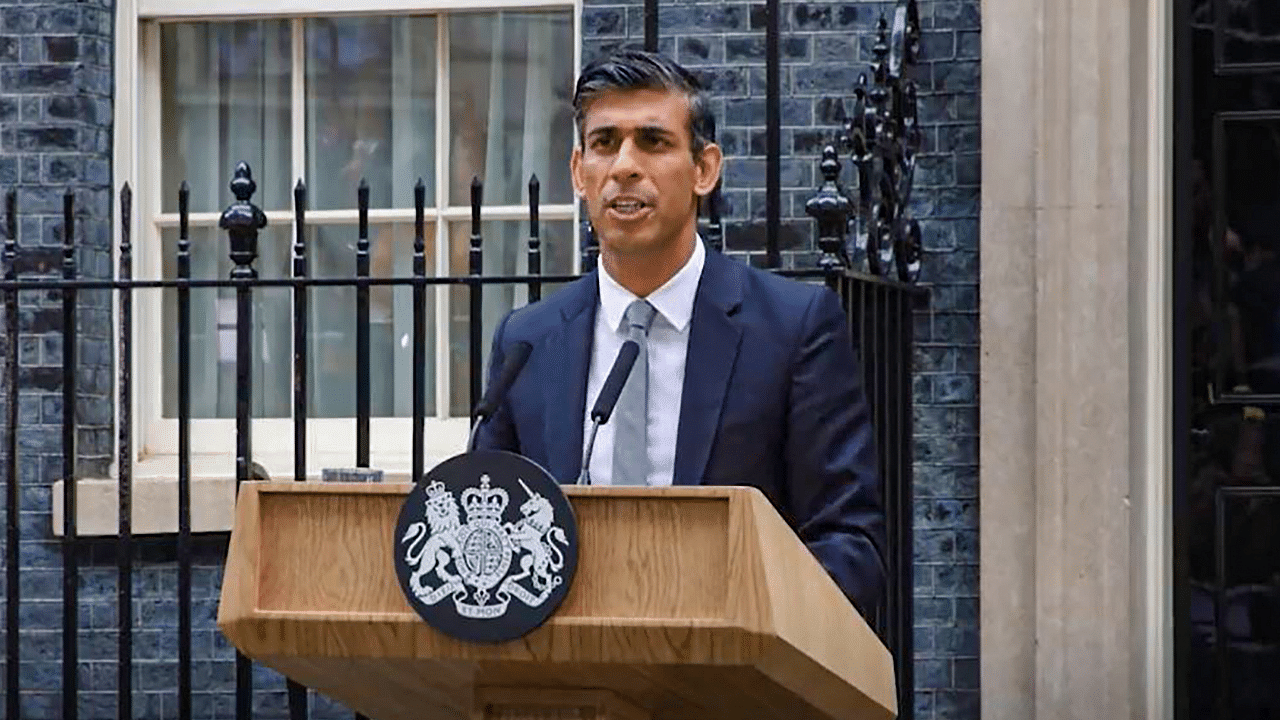
Indians take disproportionate interest in Conservative British Prime Minister Rishi Sunak because he is of Indian origin, a Hindu, and son-in-law of one of this country’s richest men. None of these features is a recipe for success in British politics, particularly since that country, after Brexit, is going through a serious upheaval, not least in the economy and social welfare programmes. The next election is due no later than January 2025, with summer/autumn 2024 the most likely timing. So, this year will be the year that will shape the election debate.
The polls, with Labour’s lead at 17%, probably flatter the main Opposition, so Conservative support will increase and the gap will tighten. But the working assumption is that Labour will form the next government. While Sunak has little time to deliver enough quickly enough, both Sunak and Labour leader Keir Starmer are contesting the reputation of a competent manager in a bleak era.
In his first speech of 2023, Sunak announced his vision of boosting British education, technology, and science, with hard work and respect for family and fellow workers. In an attempt to provide accountability in his future months in office, he pledged to reduce inflation by half, lower the national debt, grow the economy, shorten health service waiting times and reduce illegal immigration, though his degree of vagueness revealed that setting measurable targets always carries political risk.
Growing the economy is something all governments try to do, and Sunak hopes that by next year, the country will be over the worst of the current recession. Politically, will electors feel better off when the next election comes round? After such a difficult period for so many, that is going to be hard to achieve.
The cost of living will undoubtedly be a major issue for Sunak’s premiership. He knows rising prices are among the biggest concerns facing citizens now, so this is high among his priorities.
Some believe inflation might have peaked and the Bank of England predicts it will fall by mid-year, but it will remain a huge concern for those facing higher mortgage payments because interest rates have risen. Sunak has given control of public finance precedence, and last autumn outlined tough spending decisions, but huge interventions during the Covid-19 pandemic and support for energy bills have left him in a difficult position. Sunak wishes to restore economic credibility after the previous turmoil, believing that is important to Conservatives. But whether he can deliver, and by when, is the question.
Illegal immigration is repeatedly raised by Conservatives, and Sunak said in December that legislation would be introduced in parliament this year. Asked to set targets for asylum cases and refugee boats crossing the Channel this year, he declined to do so, but outlined various steps the government was taking to tackle the problem.
Sunak needs to treat National Health Service (NHS) as a priority against critics who allege a lack of government attention to it. Given the waiting lists and other pressures, NHS reform cannot happen quickly. Sunak therefore limited himself to outlining a gradual plan to reduce waiting times. Concerning the current round of strikes affecting the public sector, with people sympathetic towards nurses and ambulance drivers but less so regarding railway staff, Sunak proposes to stand firm. For nurses, the government has a recommendation from the independent pay review body of 4% to 5%, and Sunak claims that together with the benefits of the Health and Care Act, 2022, this will amount to more than the 19% that the nurses demand. Regarding the rail strike, he anticipates that the strikers will run out of funds by spring, by when the public will become exasperated by the inconvenience.
Legislation is expected shortly that will apply to the United Kingdom, excluding Northern Ireland, by which unions could be sued if they do not provide minimum levels of fire, ambulance and rail services. Voluntary agreements would cover many other sectors, including health, education, other transport services, border security and nuclear decommissioning. But such measures will not resolve the current outbreak of strikes and will face significant opposition in parliament. Unions have condemned the proposed restrictions and threatened legal action, while Labour says it would repeal them.
Sunak also has internal problems despite his willingness to compromise; back-tracking in allowing onshore wind farms, and diluting house-building targets after pressure from his backbenchers. Rank-and-file members do not consider him a true Tory because of his raising taxes. In the mini-budget last November, £25 billion was raised in new taxation, largely as subsidy for small businesses and domestic energy bills. Sunak’s attitude towards the European Union is also important. He voted for Brexit but must balance between his party’s hard-right, which rejects any concession to the EU, and others who are less adamant. The perennial Northern Ireland problem, due to its land border with the Irish Republic, which is a member of the EU, vividly displays this split which has divided Conservatives in the past and threatens to do so again.
Some basic questions remain: How much can Sunak get done on his own schedule this year? How restive will his backbenchers become if local election results in May are bleak for his party? With the strikes of 2022 continuing this year, will the inflation rate ease, or public opinion turn against strikers sufficiently fast for Sunak to be able to avoid offering public sector workers more money?
After Boris Johnson resigned, a majority of party members preferred Liz Truss to Sunak as Prime Minister. It cannot be known if one reason was Sunak’s Indian origin; in any event, not many voters would admit to racial prejudice. But this issue will remain an unspoken factor until and during the next election.
(Krishnan Srinivasan is a former foreign secretary. Julius Fein is a British historian)